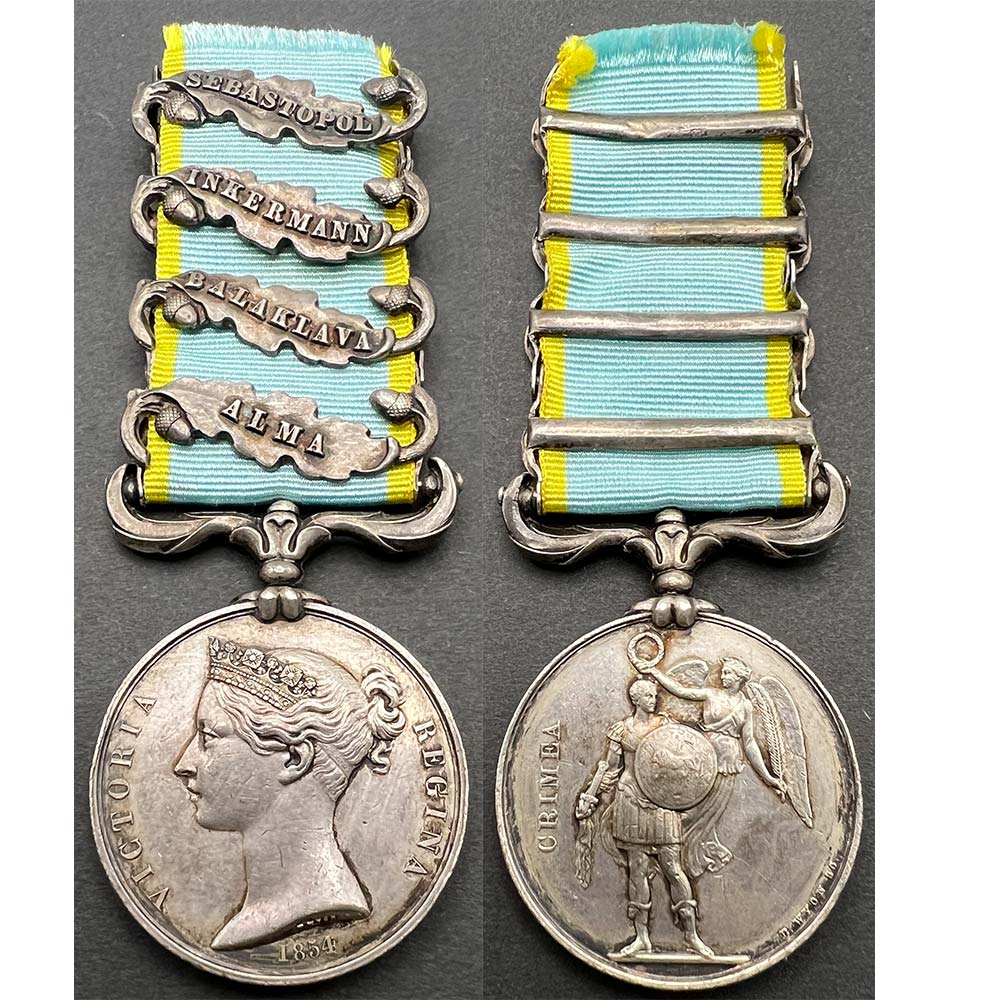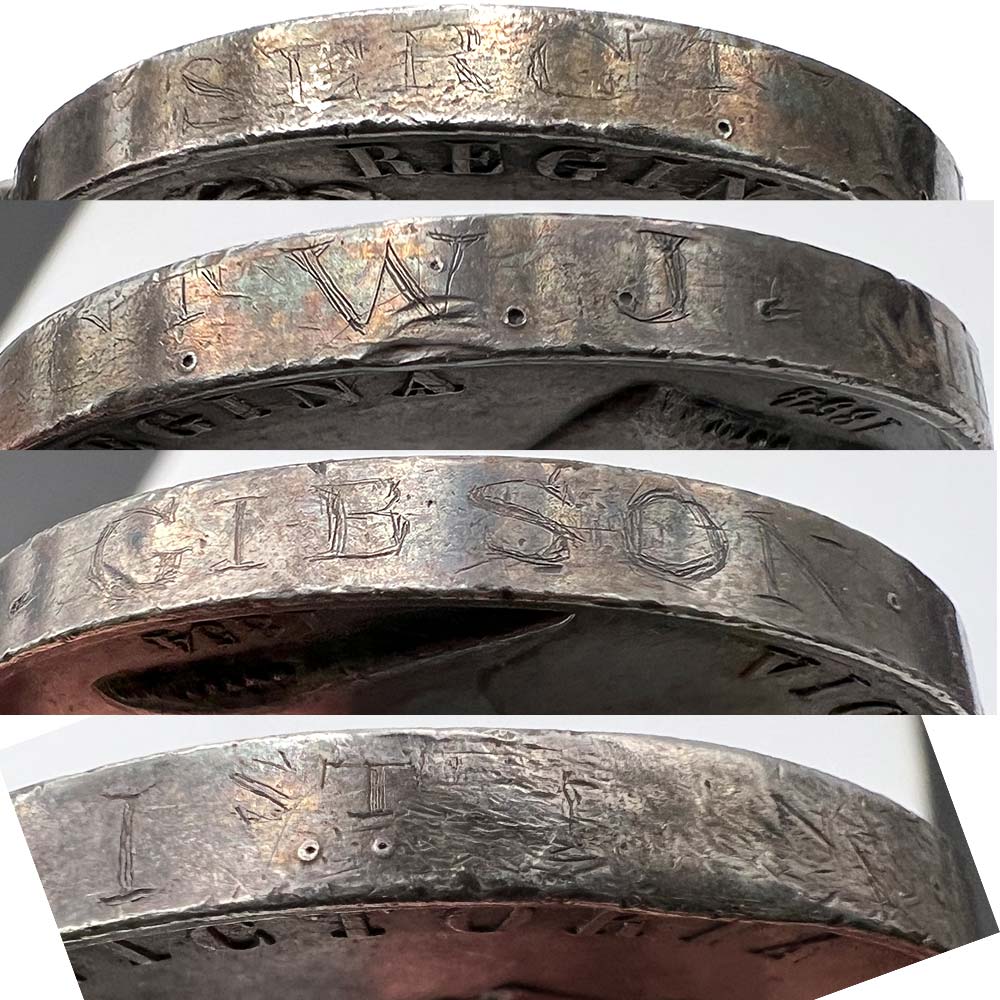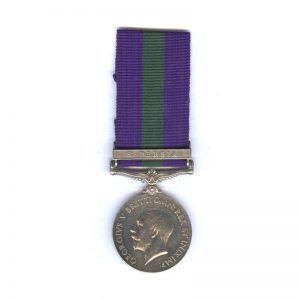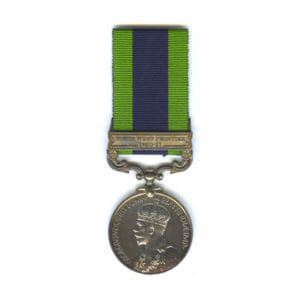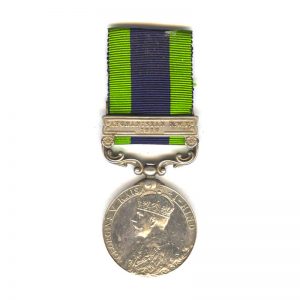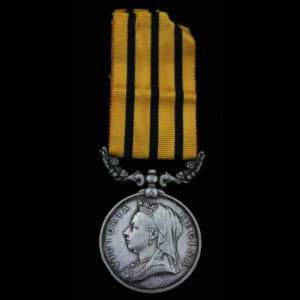Description
Crimea Medal, 4 bars, Alma, Balaklava, Inkermann, Sebastopol, Sergeant William Isaac Gibson, 1st Bn Rifle Brigade, wounded in action in trenches at Sebastopol August 1855.
Contemporarily hand engraved: “Sergt W.J. Gibson 1st…”
Some contact wear to edge over unit and rank, rank still readable, consistent with uniform wear during his career.
Note I and J were interchangeable at the time.
Confirmed on the medal roll and service records, his medal being issued to him unnamed during the war, rank of Sergeant on the medal suggests engraving circa 1855-6, before one of his numerous court martials returned him back to a Private, which might explain the somewhat faint, amateur style of engraving.
With copy service papers.
When he landed in Crimea, William was a Sergeant, having been in the Army since before he was 18, had spent 2 years as a Sergeant before a slip up led him to be arrested and reduced back to Private during the war, just prior to Balaklava (12th Oct 1854), he climbed his way back up through Corporal (Jan 1855) and Sergeant (July 1855), before a familiar arrest and reduction back to Private in March 1856.
William Isaac Gibson was born in St Georges, Southwark, Surrey, London circa 1832.
Baptism records from the period note that he was the son of Isaac Gibson (1811-1843) and Mary Ann Peake (1811-), baptised in St Marys Magdalane in Bermondsey on 10th February 1832.
However his father died at a young age during 1843, which appears to have led him to enlist at 17, having worked as a “Servant”.
At the young age of 17 he enlisted on 7th January 1847 at Westminster for the Rifle Brigade, with service number 2414.
He went on to serve for 14 years 38 days, spending 3 years 8 months abroad, spending 1 year 11 months in the Cape of Good Hope (South Africa) and 1 year 9 months in Crimea during the Crimean War.
“Discharged at his own request Free with a deferred pension of 4d a day after attaining 50 years of age.”
“His character and conduct has been good.
He is in possession of 2 good conduct badges, He is in possession of a medal for the Cape of Good Hope (South Africa 1853) and a medal for the Crimea and clasps for Alma, Inkermann, Balaklava and Sebastopol and Turkish Medal (Turkish Crimea).
He was wounded in the knee on 9th August 1855 in the Trenches before Sebastopol.
He has been 3 times tried by Court Martial, he has been once entered in the regimental defaulters book in addition to the above named Court Martials.”
His various up and downs of promotions over his career:
‘Private 7th Jan 1847 – 19th July 1850
Promoted Corporal, 20th July 1850 – 18th Dec 1852
Promoted Sergeant, 19th Dec 1852 – 11th Oct 1854
IN ARREST, 12th october 1852
Reduced to Private, 13th October 1854 – 18th January 1855
Promoted to Corporal, 19th Jan 1855 – 30th June 1855
Promoted to Sergeant, 1st July 1855 – 12th March 1856
IN ARREST 13th March – 17th March 1856
Reduced and Imprisoned, Private, 18th March 1856 – 12th May 1856
Released, Private, 13th May 1856 – 31st March 1857.
Private, 1st April 1857 – 22nd September 1858
Tried and Imprisoned, Being Drunk on Duty, 23rd Sept 1858 – 9th nov 1858
Forfeited 1 good conduct pay, 23rd Sept 1858
Released, Private, 10th Nov 1858 – 11th Novr 1861
Promoted Corporal, 12th Nov 1861 – 3rd June 1862.”
On discharge he said he would settle in Bewdley Hill, Kidderminster, Worcs.
